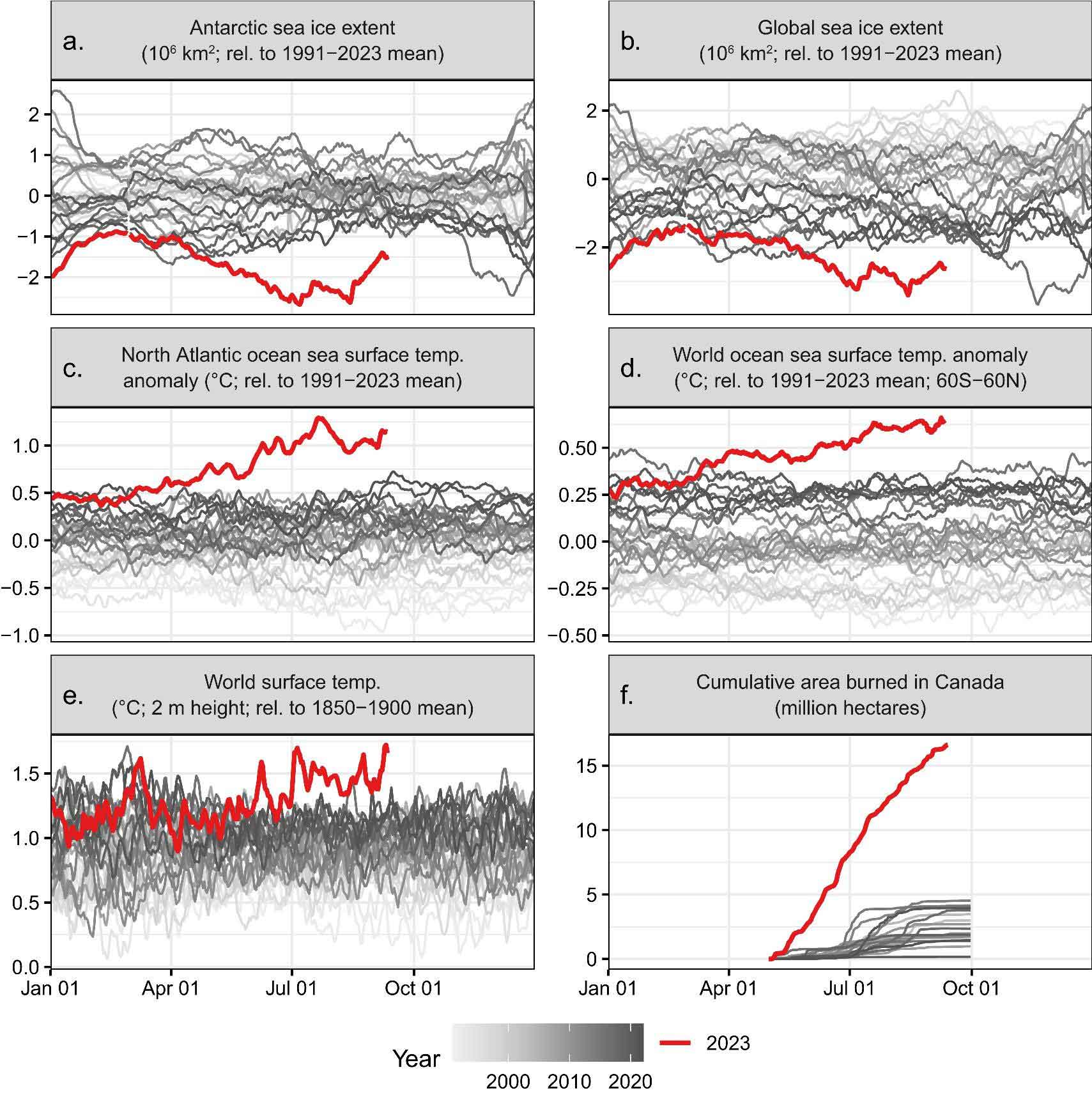Climate change is causing a severe threat to life on Earth, as prominent scientists have warned. They’re assessing the record-breaking heat and extreme weather events in 2023, which have been more severe than anticipated.
2023 is predicted to be the hottest year on record, and regions worldwide are experiencing deadly heatwaves and devastating floods due to Climate change. The situation is so dire that an international group of authors published a report in the journal BioScience, declaring that “Life on planet Earth is under siege.” They express their concern about the unprecedented nature of these extreme events.
The report criticizes the minimal progress made in reducing greenhouse gas emissions and the rising subsidies for fossil fuels. This alarming assessment coincides with the upcoming UN COP28 climate negotiations scheduled to take place in the United Arab Emirates.
Effect of Climate change on Temperature
The study evaluated 35 vital climate indicators and found that 20 of them reached record extremes this year. Even a small temperature increase of about 1.2 degrees Celsius above pre-industrial levels has triggered devastating consequences.
This year also marked the beginning of a warming El Nino weather phenomenon. The European Union’s Copernicus Climate Change Service reported that the three months leading to September were the hottest on record, possibly the warmest in about 120,000 years.

In 2023, numerous climate records have been shattered by a significant margin, with a particular focus on ocean temperatures. The report highlights that the oceans have absorbed most of the excess heat resulting from human carbon pollution.
Johan Rockstrom, one of the co-authors and the director of the Potsdam Institute for Climate Impact Research, pointed out that recorded sea surface temperatures have gone off the charts, and scientists are still struggling to fully comprehend the reasons behind this.
These dramatic Climate change have potentially severe consequences, including threats to marine life, coral reefs, and the intensification of large tropical storms.
People worldwide have experienced heatwaves, droughts, and severe flooding in regions such as the US, China, and India, among others. In Canada, record wildfires, partially linked to climate change, released more carbon dioxide than the country’s total greenhouse gas emissions in 2021.
Prior to 2023, days with global average temperatures exceeding 1.5 degrees Celsius above pre-industrial levels were quite rare. However, by mid-September, 2023 had already recorded 38 such days. While the Paris Agreement aims to limit global warming to 1.5 degrees Celsius, the report suggests that we are entering a period where annual temperatures may regularly reach or exceed this threshold. This poses a risk from climate feedback loops and tipping points that could result in significant and possibly irreversible changes in our climate.
These tipping points could involve the melting of Greenland and West Antarctica’s ice sheets, the thawing of large areas of permafrost, and widespread coral reef degradation. Although it may be challenging to prevent some of these tipping points, efforts to slow down the damage must be made by reducing emissions and limiting temperature rise. Every fraction of a degree matters in this endeavor.
The report also highlights the potential consequences for billions of people who might face intolerable conditions in the coming decades, such as extreme heat, food shortages, and climate-related extremes. The report suggests that three to six billion people could find themselves living in regions with unlivable conditions by the end of the century.
The authors emphasize the need for world leaders to take substantial action, including massive cuts in fossil fuel emissions and increased funding for climate adaptation, particularly in vulnerable regions, as they prepare for the COP28 climate conference.
Read more:
Read more about “Lahore ranked top as the most polluted city in the World” on Fast News HD | Home of Nation


